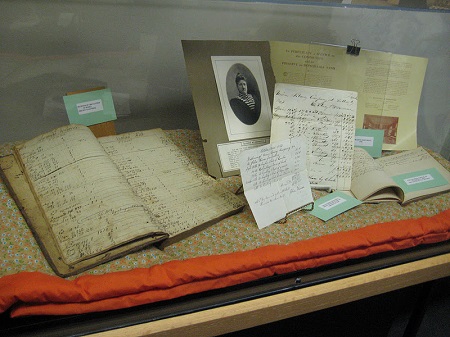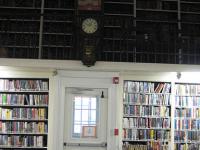As a student of library science with a love of history, it would have been surprising if I didn't fall in love with the Union Library of Hatboro. Of course I did. Formed in 1755, this Montgomery County institution lays its claim as the second oldest library in the state, and 12th oldest in the country. Now it is an independent public library, but still operating under its original charter after more than 250 years. Walking into the place, I was immediately struck with a confused sense of anachronism. It feels a lot like someone chopped the roof off a 20th-century library and floor off an 18th-century one, and then spliced the two together. At eye level, the books you would expect to find at any public library are assembled in the typical fashion. But if you raise your eyes, an additional stratum is packed with antique books, dating from the 18th and 19th centuries!

The Union Library has maintained a remarkably comprehensive set of its own records, the highlight of which are probably loan books tracking the borrowing choices of its users. The research potential of these ledgers may not be self-evident, but the consideration of reading habits within particular socio-economic contexts is an increasingly popular line of inquiry. A few months ago you may have seen the article in Slate, "This Book Is 119 Years Overdue: The wondrous database that reveals what Americans checked out of the library a century ago." In it, John Plotz delights in introducing What Middletown Read, a database of the digitized circulation records of a public library in Indiana, 1891-1902. Scholars who made use of the Middletown library database discerned a number of interesting patterns, such as the tendency of white-collar families to borrow "new releases," while blue-color borrowers were more likely to check out older books. Plotz also alludes to the value of borrowing records for genealogists: how cool would it be to have a list of the books your great-grandfather read? Plotz notes in his article that "Precious little data for libraries from before 1860 exists," which makes the Union Library of Hatboro's records all the more valuable. They aren't online like the Middletown (Muncie, Ind.) records, so you'll have to head over to Hatboro in person. But while you're there, you can check out that new bestseller you've been meaning to read. Convenient!

